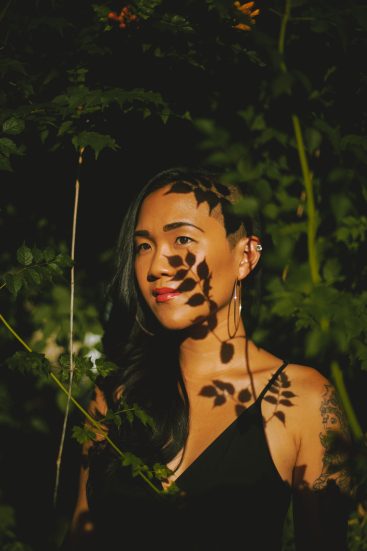“My Mother’s Pain,” by Cynthia Dewi Oka (Poetry ’19)
“My Mother’s Pain,” an essay by poetry alum Cynthia Dewi Oka, was recently featured in The Atlantic. Read an excerpt below:

My Mother’s Pain
…My own struggle with chronic pain began in my mid-20s, in the form of recurrent migraines and back and neck pain. The first loss I felt when the pandemic began was the cancellation of my monthly massage sessions, on which, like my mother, I had grown dependent.
My pain is, of course, my rage.
It first took root in the hallways of my high school in Richmond, British Columbia, where I was chased and groped so frequently that I began stealing money from my parents so I could take boxing classes. In those years, I struggled against my own conditioning to not rock the boat every time anger moved me to action. I felt like I was disappointing my parents, who had raised my sister and me to distinguish ourselves academically, but to never fight back or show outward defiance, because that’s how people back home disappeared. In my sophomore year, I began offering massages to the most egregious offenders, so I could physically reposition myself out of their line of sight. It put me temporarily in a position of control. To survive the gap between my reality and my upbringing, I had to weaponize the skill I had cultivated for healing.
Years ago, I was physically attacked by a white man I had been dating for a couple of months. He tried to strangle me when I ended the relationship after he referred to me as his “Oriental rug.” Other people I dated racialized and sexually objectified me in less overtly dehumanizing ways,but their expectations that I would be agreeable and submissive became obvious the moment I said no to something.
Again and again, I have been advised to relax. But what does relaxation look like when I have to remain on guard, both in public, against virulent anti-Asian racism and murderous anti-Asian misogyny, and in private, against my own rage at a lifetime of violations?
Read the essay in its entirety here: https://www.theatlantic.com/ideas/archive/2021/03/what-massage-means-my-family/618417/



